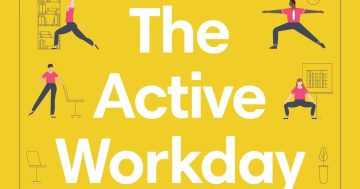Travis Bradberry* says the path to true happiness is to identify all the things that can make us unhappy and ridding them from our lives.
 It’s no secret that we’re obsessed with happiness.
It’s no secret that we’re obsessed with happiness.
Yet happiness can be fleeting. How can we find it and keep it alive?
Psychologists at the University of California have discovered some fascinating things about happiness that could change your life.
Psychology Professor, Sonja Lyubomirsky is known among her peers as “the queen of happiness”.
She began studying it as a student and has never stopped.
One of her main discoveries is that we all have a happiness ‘set point’.
When extremely positive or negative events happen — such as buying a bigger house or losing a job — they temporarily increase or decrease our happiness, but we eventually drift back to our set point.
Her research found you can make yourself happier — permanently.
She discovered that our genetic set point is responsible for only about 50 per cent of our happiness.
Life circumstances affect about 10 per cent, and 40 per cent is completely up to us.
The large portion of your happiness that you control is determined by your habits, attitude, and outlook on life.
Even when you accomplish something great, that high won’t last.
You have to work to make and keep yourself happy.
Your happiness, or lack thereof, is rooted in your habits.
There are numerous bad habits that tend to make us unhappy.
Eradicating the following bad habits can move your happiness set point in short order.
Immunity to awe:
Amazing things happen around you every day if you only know where to look.
Technology has exposed us to so much and made the world much smaller.
Yet, there’s a downside that isn’t spoken of much: Exposure raises the bar on what it takes to be awestricken.
That’s a shame, because few things are as uplifting as experiencing true awe.
True awe is humbling. It reminds us that we’re not the centre of the universe.
It’s hard to be happy when you just shrug your shoulders every time you see something new.
Isolating yourself:
Isolating yourself from social contact is a pretty common response to feeling unhappy.
However, research has found it’s the worst thing you can do.
We all have those days when we just want to pull the covers over our heads and refuse to talk to anybody, but the moment this becomes a tendency, it destroys your mood.
Recognise that when unhappiness is making you antisocial, you need to force yourself to get out there and mingle.
Blaming:
We need to feel in control of our lives in order to be happy, which is why blaming is so incompatible with happiness.
When you blame other people or circumstances for the bad things that happen to you, you’ve decided you have no control over your life.
Controlling:
It’s hard to be happy without feeling in control of your life, but you can take this too far.
The only person you can control in your life is you.
When you feel that nagging desire to dictate other people’s behaviour, this will inevitably blow up in your face and make you unhappy.
Criticising:
Judging other people and speaking poorly of them is a lot like over-indulging in a decadent dessert.
It feels good while you’re doing it, but afterwards, you feel guilty and sick.
Criticising other people is just a bad habit that’s intended to make us feel better about ourselves.
Unfortunately, it doesn’t. It just creates a spiral of negativity.
Complaining:
Complaining is troubling, as well as the attitude that precedes it.
Complaining is a self-reinforcing behaviour.
By constantly talking — and therefore thinking — about how bad things are, you reaffirm your negative beliefs.
Beyond making you unhappy, complaining drives other people away.
Impressing:
People will like your clothes, your car, and your fancy job, but that doesn’t mean they like you.
Trying to impress other people is a source of unhappiness, because it doesn’t get to the source of what makes you happy.
That is finding people who like you and accept you for who you are.
There’s an ocean of research that shows that material things don’t make you happy.
When you make a habit of chasing things, you are likely to become unhappy.
You often discover that you’ve gained them at the expense of the real things that can make you happy, such as friends, family, and taking good care of yourself.
Negativity:
Life won’t always go the way you want it to, but when it comes down to it, you have the same 24 hours in the day as everyone else.
Happy people make their time count.
Instead of complaining about how things could have been or should have been, they reflect on everything they have to be grateful for.
Then they find the best solution available to the problem, tackle it, and move on.
The problem with a pessimistic attitude, apart from the damage it does to your mood, is that it becomes a self-fulfilling prophecy.
If you expect bad things, you’re more likely to get bad things.
Force yourself to look at the facts, and you’ll see that things are not nearly as bad as they seem.
Neglecting to set goals:
Having goals gives you hope and the ability to look forward to a better future.
Working towards those goals makes you feel good about yourself and your abilities.
It’s important to set goals that are challenging, specific (and measurable), and driven by your personal values.
Without goals, instead of learning and improving yourself, you just plod along wondering why things never change.
We can’t control our genes, and we can’t control all of our circumstances, but we can rid ourselves of habits that serve no purpose other than to make us miserable.
*Travis Bradberry is the co-founder of TalentSmart, a provider of emotional intelligence tests, emotional intelligence training, and emotional intelligence certification. He can be contacted at TalentSmart.com.
A longer version of this article appears on the TalentSmart website.











